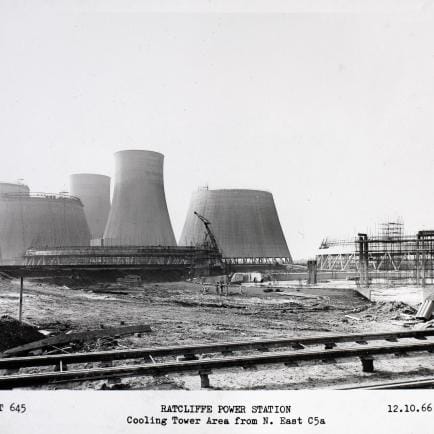Digging Deeper: Legal Battle Unveils Clash Between Economic and Environmental Interests
'Victory for the environment'

By Camilla Taylor, BA International Relations 28/10/2024
The UK is currently facing a significant turning point in its energy policy as recent plans to build the UK’s first deep coal mine in more than 30 years have been quashed. This deep coal mine court case will mark an absolute end of coal mining in the country. The legal battle has highlighted the broader issues of climate change, energy security and the transition to renewable energy sources. The central issue in the case was the now blocked plans for a new deep coal mine, Woodhouse Colliery, near Whitehaven in Cumbria, which has sparked intense debate and opposition from environmental groups and local communities.
The proposed mine, which aimed to extract coking coal used for steel production, was endorsed by its supporters as a means to boost the UK’s economy. In fact, the former mayor of Copeland said: ‘The benefits it [the mine] will bring to west Cumbria and the people of west Cumbria are huge.’ It was also set to secure 500 jobs in a region which has historically relied on coal mining, and where 15,000 children are living in poverty. The proponents claim that the mine could provide a domestic source of coal, reducing the country’s reliance on imports, and in turn, enhancing its energy security at a time of global uncertainty.
However, the opponents argue that the building of the mine contradicts the UK’s commitment to reducing carbon emissions and achieving its net-zero targets by 2050. South Lakes Action on Climate Change stated: ‘The UK Government’s claim that a new coal mine can be “climate neutral” is unfounded and unreasonable and has a toxic effect on global climate efforts.’ The mine’s total lifetime emissions, coming almost entirely from the burning of coal, were predicted to exceed 220m tonnes of CO2 equivalent. The opening of a new coal mine would also notably contradict the UK government's promises at the COP26 UN Climate Change Conference in 2021, held by the UK in Glasgow, to end coal emissions by the end of 2024. Evidently, the mine’s potential economic benefits must be weighed against the long-term environmental consequences.
The court case has come at a time when the global energy landscape is shifting. The war in Ukraine and its subsequent energy crisis has resulted in many countries reconsidering their energy strategies. While some nations have turned back to coal as a short-term solution to energy shortages, Britain faces the pressure to maintain its commitment to renewable energy and climate action.
Public opinion on this case is greatly divided. Many residents in Cumbria are concerned about job losses and fear the economic impact. However, there is still a strong movement advocating for a transition to ‘green’ jobs and sustainable energy sources. In addition, the new Labour government has pledged to invest in renewable energy and create jobs in sectors such as wind and solar power, in order to help alleviate economic concerns. In July, the new Labour government withdrew support from the Whitehaven mine in the Cumbria legal case and no longer defended this plan made by the previous Conservative government. Lawyers acting for Angela Rayner, the Secretary of State for Housing, Communities and Local Government, claimed that there had been an ‘error in law’ in the decision to grant the planning permission for the mine in December 2022.
‘Victory for the environment’
On 13 September 2024, the High Court ruled that the plans to build the facility in Whitehaven, Cumbria would not proceed. The two environmental campaign groups, South Lakes Action on Climate Change and Friends of the Earth, called it a ‘victory for the environment.’ It is clear that this deep coal mine court case represents a greater struggle between economic interests and environmental responsibilities. The outcome of the court case could set a precedent for future energy projects and signal a definitive end to deep coal mining in the UK, reinforcing the country’s position as the leader of climate action, which was vowed by Edward Miliband, the Secretary of State for Energy Security and Net Zero, in early July.
The deep coal mine court case serves as a reminder that although the transition to renewable energy is not without its challenges, it is crucial for the country to remain committed to its climate goals. A professor in energy and climate governance at the University of Lancaster said that she hopes the decision would ‘set an example to other countries and show how you can get your national law in line with climate science.’ It is possible that this landmark court case will challenge the future of coal mining not only in the UK, but also globally, placing the UK at the forefront of combating climate change.
The UK’s deep coal mine court case is a pivotal moment in the nation’s energy history. It encapsulates the tensions between traditional energy sources and the urgent need for sustainability. The decision will resonate beyond the courtroom, influencing policies, public opinion and the direction of the UK’s energy landscape for years to come.




